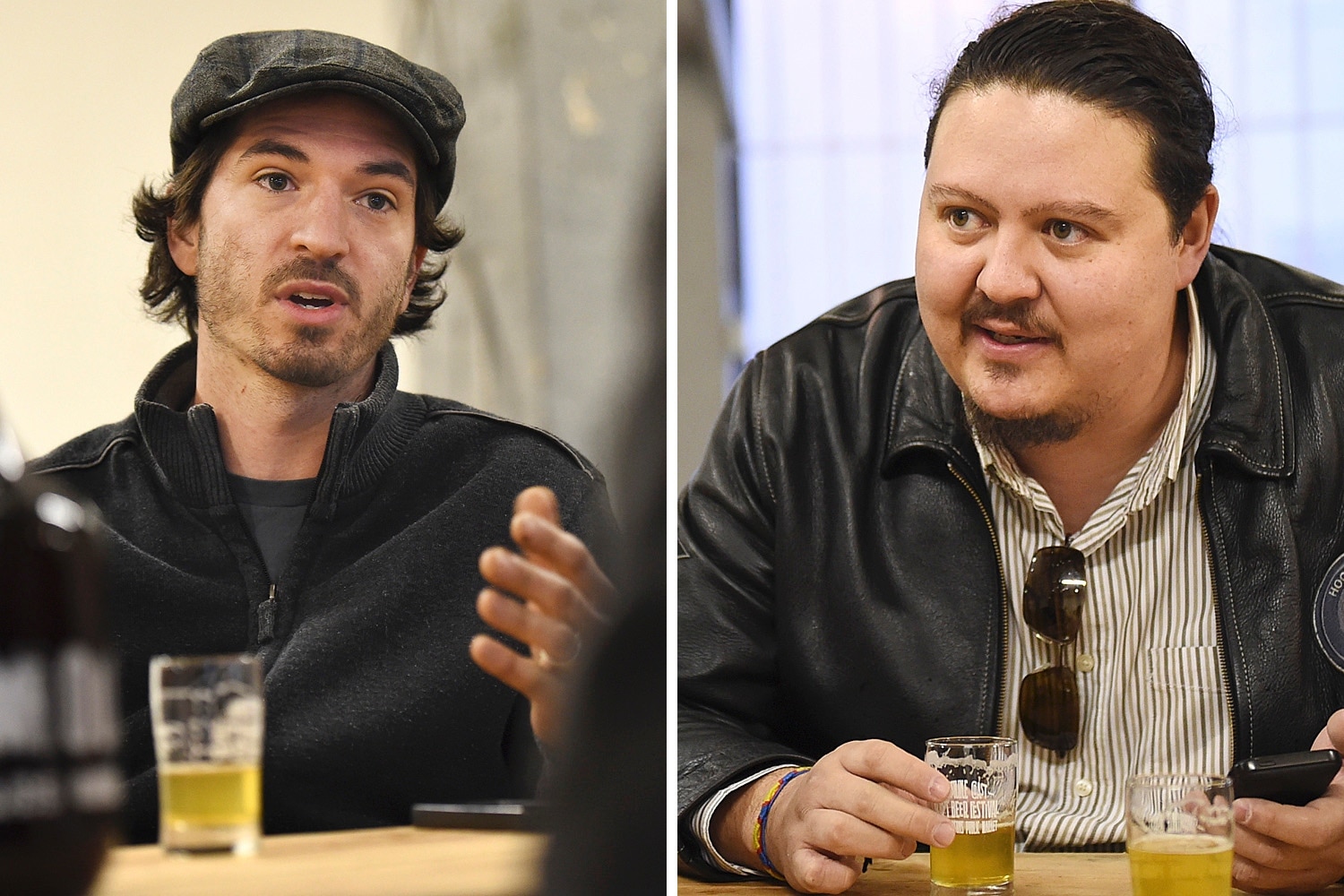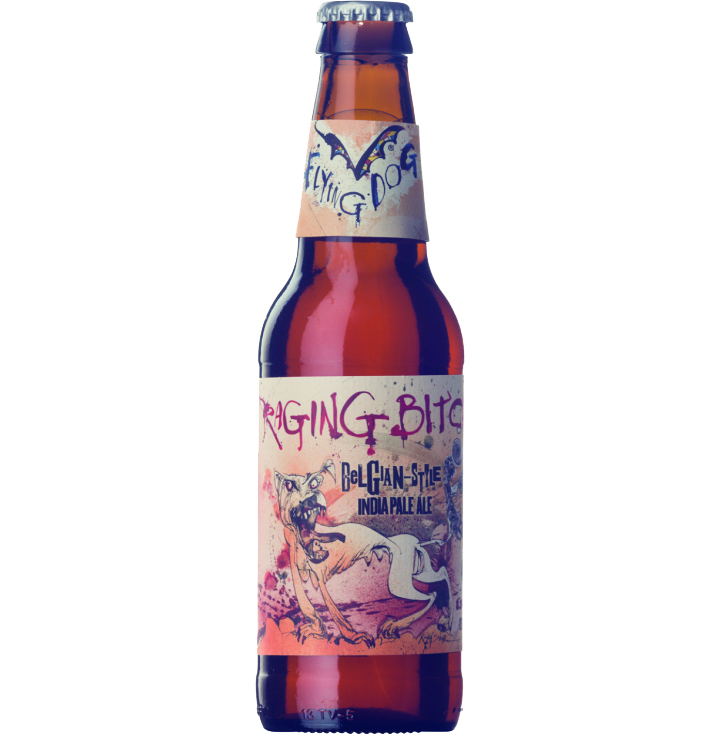
The Growler’s fifth issue is out March 1. For this one, we spoke to Ryan Parfitt of Luppolo Brewing andNicolás Amaya of Andina Brewing. Because these men were complete strangers prior to this conversation, and because both breweries will be opening in the same area (Yeast Van) at the same time (this summer), we thought they’d have some insightful and compelling ideas on the city, the industry and the beer.
Parfitt and Amaya sat down in Andina’s spacious future brewery – which was just an empty warehouse, save the sawdust – on Powell Street.
NICOLAS AMAYA: I’ve heard people wondering, like in the housing market, is the beer bubble going to burst? What do you think about that?
RYAN PARFITT: To me, it’s not one of those things that’s a fad, where people drink craft beer and then go, “Ah screw it, I’m going back to Molson Canadian.” Once your palate has tasted good beer, you can’t go back. It’s like good coffee, good food, good wine. All those industries have shown that it’s not a trend or a fad. It’s more of a movement than anything else. Do you think we’re anywhere near market saturation in Vancouver?
NA: Not that I know a lot about that, but I think that there’s still room for a lot more. In a month, I can go to eight or nine breweries. Then I can go, OK, I already went there, I already went there. Sometimes I go, “Ah, I wish there were more that I can explore!”
So, you know, the way that I see it is this: There’s going to be a lot of breweries, even in the years ahead, and I guess it’s the beer itself that’s going to dictate if the brewery is successful or not. The main thing is, people start developing a taste. You know what beer you like and you know what beer you don’t like. If you don’t like the beer you’re not going to go [to that brewery].
GROWLER: Was it a happy accident that you both ended up in Yeast Van, or did you try to end up here?
RP: This was my target area for several reasons, the main one honestly being cost per square foot. I knew I wanted to be in Vancouver proper. I grew up here my whole life and I don’t want to commute to work. So really there’s just this area and the Brewery Creek area that has the correct zoning. I was aiming for here, but you could say it’s a happy accident too.
NA: Because I live in Maple Ridge, we were thinking of maybe opening in Maple Ridge. Then we quickly realized, no, we want to be in the middle of it, right? But after 11 months of looking for places [and finding nothing], we were really desperate and were thinking of other options. Maybe Burnaby or, you know…
Then we thought, no no no, it’s got to be in Vancouver. We weren’t really aiming for Yeast Van for whatever, but when this place became available, we came in and said, “I love this place!” We gotta do it. Thankfully it worked out.
RP: What size brewing system are you using?
NA: We’re going to have a 20-barrel system. Initially, we’re going to have five fermenters to start. We talked to the brewers at Parallel 49, Steel & Oak and Yellow Dog, and we asked them what’s the main thing, if you could do this all over again. Everyone said, “Space.” Space. The guys from Dageraad are like playing Tetris. You gotta move stuff around. They’re desperate for space.
RP: That seems to be what everybody is telling me as well. Just find as much space as you can get. Talk to your landlord to see if they have any other buildings in the area because you’re going to run out, like, right away basically.
NA: When we saw this place and the area back there –
RP: Yeah, you have a ton of room to grow.
NA: It’s overkill at the beginning, but in 10 years, we can still be here.
RP: Instead of having to move and do it all over again.
NA: Exactly.
RP: Are you going to be packaging at all?
NA: We’ve talked extensively about that. Initially the idea was, for the first year, just sell beer out of the taproom, but we looked at the other breweries. They open and within three months they’re canning and bottling. We’ll have to assess the demand. We don’t want the “If everyone’s doing it, let’s do it.” It all depends on the demand, I suppose, on the product.
RP: I guess that’s the one part of the market that is a little bit tight, as far as I know anyway, is bottles and cans on shelves in liquor stores. When you go to beer stores, and there are 200 different beers there. Why are they necessarily going to pick your product or my product over the other 200 that are there? Liquor stores that only have a small section will have bigger craft beers.
GROWLER: Do you find it intimidating, like the level of quality and what you now have to match?
RP: Yeah, for sure. I mean, not debilitating-ly intimidating. I always knew that I had to brew good beer if I was going to be successful in this market, but for sure it’s a little intimidating knowing just how good the beer is elsewhere. It just means that we as well have to elevate our game and brew good beer.
NA: More than intimidating, it’s a good challenge to have, right? Your beer has to be as good or better to keep going up. I think, y’know, Brassneck is fabulous. That’s the whole thing. It’s a challenge. If they make good beer, we need to make good beer, right?
GROWLER: Have you noticed if there’s a unique style or flavour that’s being cultivated in BC, or in the Lower Mainland, versus what’s coming out of the Bay Area or Portland or Washington?
RP: I’d say the one thing in particular – I mean not that it’s not also being done elsewhere – but like barrel-aged sours and that sort of beer. It’s pretty rare to walk into a brewery and not see something in barrel storage right now. Other than that, I don’t know, maybe West Coast hoppy beer, but that’s obviously not independent to Vancouver.
GROWLER: The one thing I’ve noticed is there aren’t as many big, hoppy IPAs and pales ales. There’s a lot more emphasis on doing other kinds of session beers, malty beers, stuff that isn’t the big hop bomb. It’s almost like we’re moving away from that, where if you go to San Francisco, it’s IPA all the time.
RP: That’s interesting. That’s probably a pretty astute observation. If you think about all the main breweries in Vancouver now, not a lot of them have super hoppy beers. I guess Strange Fellows in particular, they haven’t really either. I guess they did one IPA, but they certainly don’t have it available all the time.
I guess most of the guys do an IPA, but most of the beer is predominantly, I don’t know if you want to say approachable but a little outside that wheelhouse I guess, which is good. I hear people all the time, going, “I don’t want beer that’s going to punch me in the face with hops.” I still think there is a market for that, for sure, but it’s shifting away.
GROWLER: This market is still so young, and there are still so many people coming in, that I think a lot of the lineups are being dominated by entry level beers because hops scare people away. So you have a lot of these breweries aren’t creating all these hoppy beers in order to get all these new people in and acquainted with craft beer. Whereas in Portland or Seattle –
RP: They’re so much more established.
GROWLER: Yeah, it’s acquainted with hops and it wants hops. Maybe that’s why. I don’t know, but it’s interesting because it’s creating a flavour profile of Vancouver beers.
RP: To your point about entry-level beers and kind of getting people into the craft beer market, that’s really what we need in the industry, right? We need people shifting over from drinking whatever generic beers into craft. If it takes an approachable beer, then it’s good for all of us.
NA: It goes back to what you were saying before. We’ve all been there – once you get into craft beer, you start to develop the taste, then you go to have a Bud or whatever, a Corona, you go, No, no, no, I want beer. Real beer. That’s a good point you make. That’s a way to get people in.
RP: What’s been your biggest challenge so far in the whole process? Right from deciding you’re going to do this, all the way up to this point where you’re applying for permits.
NA: I have to say finding the place. Everything else is work, but it’s work you put in and something comes out of it. But when you’re actually in a position where you actually need a place and you can’t find it because there’s nothing available? That’s very stressful. We had some very stressful months. Week after week. Three weeks went by and nothing, you know? How was that process for you?
RP: That was definitely long and tedious. But for me, it was like, when the perfect place pops up then we’ll hit the ground running. Since then, more stressful I think has been paying rent pre-permit. Just waiting for the beer-acracy to let us through. It’s a lot for space that you can’t do anything with, right?
NA: It is stressful. The way that I think about it is, OK it is stressful, but now we do have a place, and no matter what we do, we’re going to open and we’re going to start producing.
RP: It’s just about raising extra capital I guess, which in the end isn’t outside of your control, whereas finding a space is. If something comes up, great. If it doesn’t, then what do you do?





